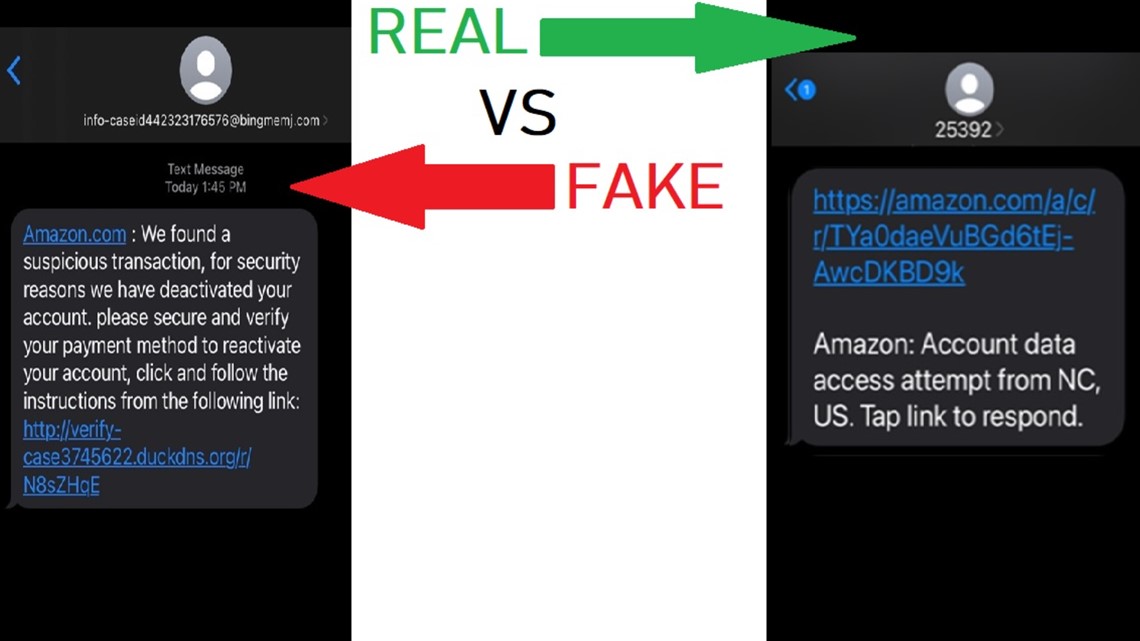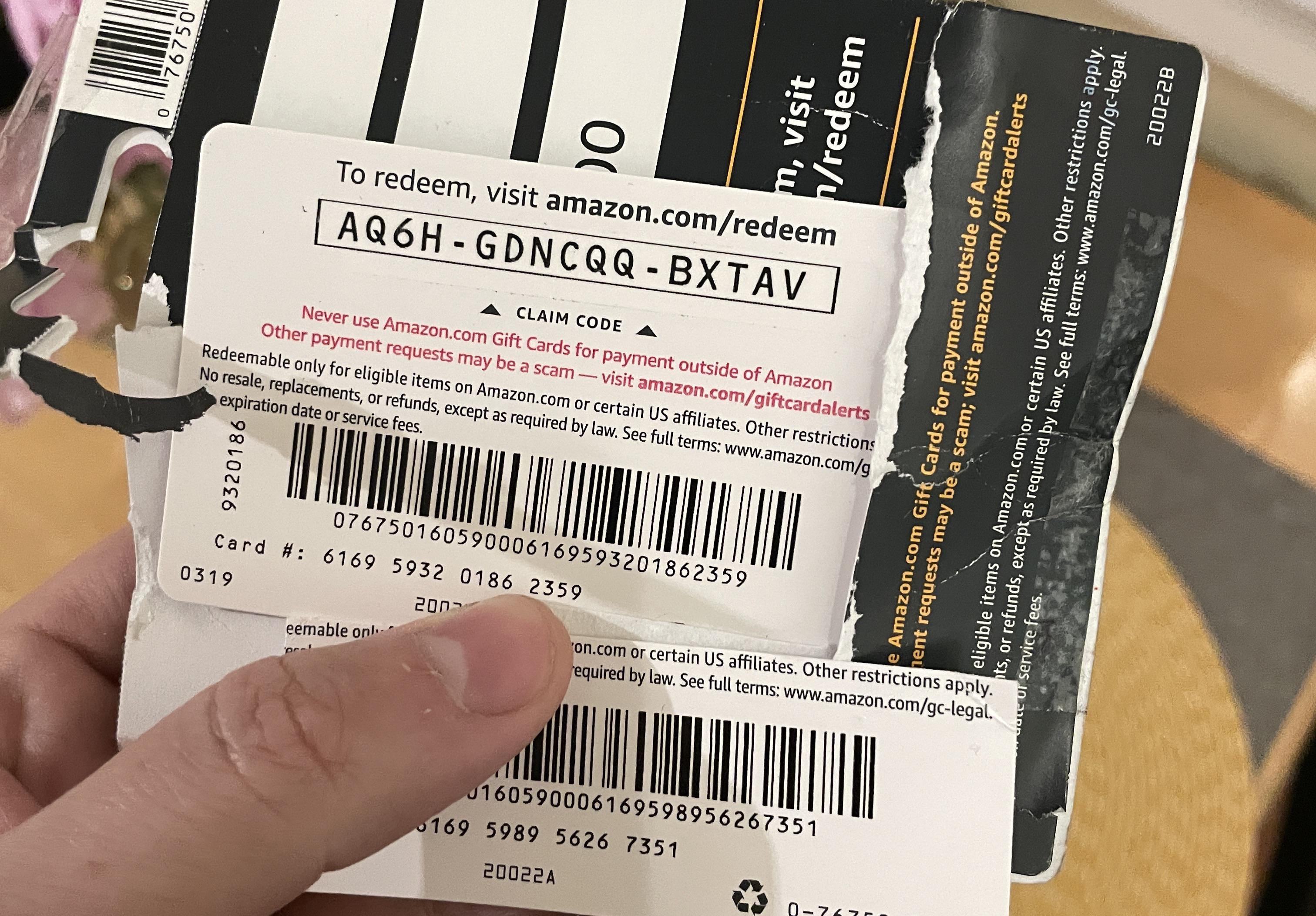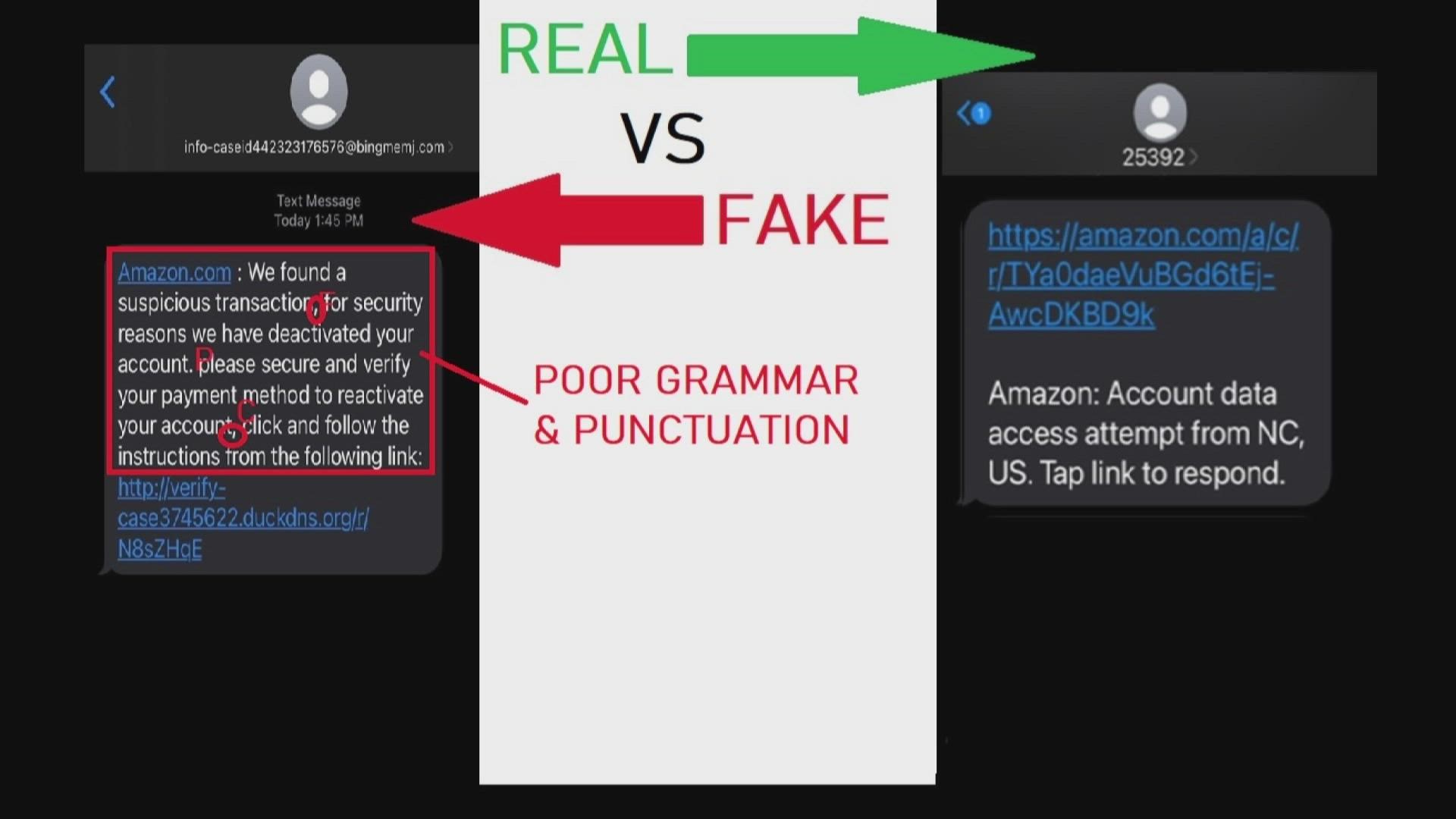Banished From The Amazon: Deciphering The Enigma Of Code Text Denial
When you see the term "amazon code text deny here", what does that mean?
When a user enters a search query on Amazon, the website generates a list of potential matches. Each match is assigned a unique code, which is used to track the user's activity on the site. If a user clicks on a match and then decides not to purchase the product, Amazon may deny the code. This means that the code will no longer be valid for future use.
There are several reasons why Amazon might deny a code. One reason is that the user may have violated Amazon's terms of service. For example, if a user creates multiple accounts in order to take advantage of promotions, Amazon may deny the codes associated with those accounts. Another reason for denying a code is that the user may have engaged in fraudulent activity. For example, if a user uses a stolen credit card to purchase a product, Amazon may deny the code associated with that purchase.
If you see the term "amazon code text deny here", it is important to understand what it means. This information can help you avoid having your codes denied in the future.
amazon code text deny here
When a user enters a search query on Amazon, the website generates a list of potential matches. Each match is assigned a unique code, which is used to track the user's activity on the site. If a user clicks on a match and then decides not to purchase the product, Amazon may deny the code. This means that the code will no longer be valid for future use.
- Unique code: Each match is assigned a unique code.
- Tracking: The code is used to track the user's activity on the site.
- Denied code: Amazon may deny the code if the user does not purchase the product.
- Terms of service: Amazon may deny the code if the user violates the terms of service.
- Fraudulent activity: Amazon may deny the code if the user engages in fraudulent activity.
- Multiple accounts: Amazon may deny the codes associated with multiple accounts created to take advantage of promotions.
- Stolen credit card: Amazon may deny the code associated with a purchase made using a stolen credit card.
It is important to understand what the term "amazon code text deny here" means in order to avoid having your codes denied in the future. If you see this term, it is important to check the terms of service and make sure that you are not violating any of them. You should also avoid engaging in any fraudulent activity. If you have any questions about why your code was denied, you can contact Amazon customer service for more information.
1. Unique code
In the context of "amazon code text deny here", the unique code assigned to each match plays a crucial role in tracking the user's activity on the site. This code allows Amazon to identify and deny codes that are associated with fraudulent activity or violations of the terms of service.
- Tracking User Activity: The unique code enables Amazon to track the user's search history, product views, and purchases. This information is used to personalize the user's shopping experience and to make recommendations based on their interests.
- Preventing Fraud: Amazon uses the unique code to detect and prevent fraudulent activities, such as the use of stolen credit cards or the creation of multiple accounts to take advantage of promotions.
- Enforcing Terms of Service: The unique code helps Amazon to enforce its terms of service. For example, Amazon may deny codes associated with accounts that are used for spamming or other prohibited activities.
Overall, the unique code assigned to each match is an important part of Amazon's efforts to provide a secure and fair shopping experience for its users.
2. Tracking
The tracking of user activity on Amazon, facilitated by the unique code assigned to each search match, plays a vital role in the context of "amazon code text deny here". This tracking mechanism allows Amazon to monitor user behavior and identify potential violations of its terms of service or fraudulent activities.
- Identifying Suspicious Activity:
By tracking user activity, Amazon can identify patterns that may indicate suspicious behavior, such as multiple failed login attempts or unusual purchasing patterns. This helps Amazon to prevent unauthorized access to accounts and fraudulent transactions. - Enforcing Terms of Service:
The tracking of user activity also enables Amazon to enforce its terms of service. For example, Amazon may track the number of items a user returns or exchanges to identify potential abuse of the return policy. - Personalizing the User Experience:
In addition to detecting suspicious activity, Amazon also uses the tracking data to personalize the user experience. By understanding a user's search history and purchasing habits, Amazon can provide tailored recommendations and product suggestions, making the shopping experience more convenient and efficient. - Improving Site Functionality:
The tracking of user activity helps Amazon to improve the functionality of its website. By analyzing user behavior, Amazon can identify areas for improvement, such as optimizing the search algorithm or streamlining the checkout process.
Overall, the tracking of user activity on Amazon, made possible by the unique code assigned to each search match, is an essential component of Amazon's efforts to maintain a secure and user-friendly shopping experience.
3. Denied code
In the context of "amazon code text deny here", the concept of a denied code is directly related to Amazon's policy of denying codes to users who do not purchase products after clicking on search matches. This practice helps Amazon to maintain the integrity of its search results and to prevent abuse of its promotional offers.
- Discouraging Clickbait:
By denying codes to users who do not make purchases, Amazon discourages clickbait tactics by sellers who may create enticing search matches to drive traffic to their products without genuine purchase intent. - Preventing Code Hoarding:
Denying codes helps to prevent users from hoarding codes and using them for future purchases, ensuring that codes are used actively and for their intended purpose. - Maintaining Search Relevance:
Amazon's code denial policy contributes to the relevance of its search results by filtering out non-converting matches. This improves the user experience by providing more accurate and relevant product recommendations. - Combating Fraud:
Denying codes to non-purchasers helps to combat fraudulent activities, such as the use of bots to generate clicks on search matches without actual purchase intent.
Overall, Amazon's policy of denying codes to users who do not purchase products is an important measure to maintain the integrity of its search results, prevent abuse, and provide a positive user experience.
4. Terms of service
Within the context of "amazon code text deny here", the relationship between "Terms of service: Amazon may deny the code if the user violates the terms of service." and "amazon code text deny here" holds significant importance.
The terms of service (ToS) are a set of rules and regulations that govern the use of Amazon's website and services. These ToS outline the acceptable and unacceptable behaviors for users, and violations of these ToS can result in consequences, including the denial of codes.
For example, if a user creates multiple accounts in order to take advantage of promotions, this would be a violation of Amazon's ToS. As a result, Amazon may deny the codes associated with those accounts. Another example would be if a user engages in fraudulent activity, such as using a stolen credit card to purchase products. In this case, Amazon may deny the code associated with that purchase.
Understanding the connection between "Terms of service: Amazon may deny the code if the user violates the terms of service." and "amazon code text deny here" is crucial for users who want to avoid having their codes denied. By adhering to the ToS and avoiding prohibited activities, users can ensure that their codes remain valid and usable.
5. Fraudulent activity
In the context of "amazon code text deny here", fraudulent activity plays a significant role in understanding why Amazon may deny a code. Fraudulent activities are prohibited by Amazon's terms of service, and engaging in such activities can result in the denial of codes, as well as other consequences.
- Unauthorized Access and Account Takeover:
Fraudulent activities can include unauthorized access to accounts, where individuals gain access to user accounts without their knowledge or consent. This can involve phishing scams, hacking, or other methods used to obtain login credentials. Once an account is compromised, fraudsters may engage in fraudulent purchases or other activities, leading to code denials. - Misuse of Promotions and Discounts:
Fraudulent activity can also involve the misuse of promotions and discounts offered by Amazon. This may include creating multiple accounts to take advantage of welcome offers or using stolen credit cards to make purchases. Amazon's systems are designed to detect and prevent such fraudulent activities, and codes may be denied if they are associated with suspicious or fraudulent behavior. - Counterfeit Products and Scams:
Fraudulent activities can extend to the sale of counterfeit products or running scams on the Amazon platform. Individuals or businesses may engage in selling fake or unauthorized products, or they may create listings with the intention of defrauding customers. Amazon takes strict action against such activities, and codes may be denied if they are linked to fraudulent product listings or transactions. - Chargebacks and Refunds:
Fraudulent activities can also occur through chargebacks and refund scams. Fraudsters may make purchases and then initiate chargebacks, claiming unauthorized transactions or product dissatisfaction. In cases where Amazon determines that the chargeback is fraudulent, the associated code may be denied.
Understanding the connection between "Fraudulent activity: Amazon may deny the code if the user engages in fraudulent activity." and "amazon code text deny here" is crucial for users who want to avoid having their codes denied. By adhering to Amazon's terms of service and refraining from fraudulent activities, users can maintain the validity and usability of their codes.
6. Multiple accounts
The connection between "Multiple accounts: Amazon may deny the codes associated with multiple accounts created to take advantage of promotions." and "amazon code text deny here" stems from Amazon's policy of denying codes to users who violate its terms of service. Creating multiple accounts to take advantage of promotions is considered a violation of Amazon's ToS, as it goes against the intended purpose of promotional offers.
When a user creates multiple accounts to take advantage of promotions, they are essentially engaging in a form of fraud. Amazon's systems are designed to detect such activities, and codes may be denied if they are associated with multiple accounts that exhibit suspicious patterns. This helps Amazon to maintain the integrity of its promotional offers and prevent abuse.
Understanding the connection between "Multiple accounts: Amazon may deny the codes associated with multiple accounts created to take advantage of promotions." and "amazon code text deny here" is important for users who want to avoid having their codes denied. By adhering to Amazon's ToS and refraining from creating multiple accounts for promotional purposes, users can maintain the validity and usability of their codes.
7. Stolen credit card
The connection between "Stolen credit card: Amazon may deny the code associated with a purchase made using a stolen credit card." and "amazon code text deny here" is significant, as it relates to Amazon's efforts to combat fraud and protect its customers' financial security.
When a purchase is made using a stolen credit card, it is considered a fraudulent transaction. Amazon has robust systems in place to detect and prevent fraudulent activities, including the use of stolen credit cards. If Amazon detects that a code is associated with a purchase made using a stolen credit card, the code may be denied as part of Amazon's anti-fraud measures.
Understanding the connection between "Stolen credit card: Amazon may deny the code associated with a purchase made using a stolen credit card." and "amazon code text deny here" is important for several reasons. First, it helps users understand why their codes may be denied. If a user receives a notification that their code has been denied due to a suspected fraudulent purchase, they can take steps to address the issue, such as contacting their bank or credit card company to report the stolen card.
Second, understanding this connection can help users avoid becoming victims of fraud. By being aware that Amazon may deny codes associated with purchases made using stolen credit cards, users can be more vigilant about protecting their financial information and avoiding phishing scams or other fraudulent activities that could compromise their credit card details.
Overall, the connection between "Stolen credit card: Amazon may deny the code associated with a purchase made using a stolen credit card." and "amazon code text deny here" is an important aspect of Amazon's fraud prevention efforts and user protection measures.
Frequently Asked Questions about "amazon code text deny here"
This section provides answers to some of the most frequently asked questions about "amazon code text deny here", addressing common concerns and misconceptions.
Question 1: Why might Amazon deny a code?
Amazon may deny a code for various reasons, including violations of Amazon's terms of service, fraudulent activities, and purchases made using stolen credit cards. Creating multiple accounts to take advantage of promotions is also against Amazon's policies and may result in denied codes.
Question 2: What should I do if my code has been denied?
If your code has been denied, you can contact Amazon customer service for assistance. They will investigate the issue and provide you with more information about why your code was denied.
Question 3: How can I avoid having my codes denied?
To avoid having your codes denied, it is important to adhere to Amazon's terms of service and refrain from engaging in fraudulent activities. Additionally, avoid creating multiple accounts for promotional purposes and be cautious about protecting your financial information.
Question 4: What is Amazon's policy on fraudulent activities?
Amazon has a strict policy against fraudulent activities, including the use of stolen credit cards and the sale of counterfeit products. Amazon's systems are designed to detect and prevent fraudulent activities, and codes may be denied if they are associated with suspicious or fraudulent behavior.
Question 5: How does Amazon protect its customers from fraud?
Amazon employs various measures to protect its customers from fraud, including robust fraud detection systems, secure payment processing, and collaboration with law enforcement agencies. By understanding Amazon's policies and taking steps to protect your personal and financial information, you can help prevent fraud and maintain the security of your Amazon account.
Understanding the reasons for code denial and Amazon's policies can help users avoid having their codes denied and protect themselves from fraudulent activities. By adhering to Amazon's terms of service and being vigilant about online security, users can enjoy a safe and secure shopping experience on Amazon.
Transition to the next article section: Exploring the Benefits of Amazon Prime Membership
Conclusion
In summary, "amazon code text deny here" refers to Amazon's policy of denying codes to users who violate its terms of service or engage in fraudulent activities. Understanding the reasons for code denial is crucial for users to avoid having their codes denied and to protect themselves from online fraud.
By adhering to Amazon's policies and taking steps to safeguard personal and financial information, users can maintain the validity of their codes and ensure a safe and secure shopping experience on Amazon. Amazon's commitment to combating fraud and protecting its customers' interests is evident in its robust fraud detection systems, secure payment processing, and collaboration with law enforcement agencies.
- Jason Momoa Johnny Depp
- George Jones Cd
- When Is Lil Boosies Birthday
- Jake Gyllenhaal Height In Feet
- Tori Spelling First Wedding

Amazon texts Which ones are real and which ones are fake?

How To Tell If An Amazon Gift Card Has Been Scratched Or Not?

Real Or Not? Expert Shares How To Identify If Text From, 49 OFF